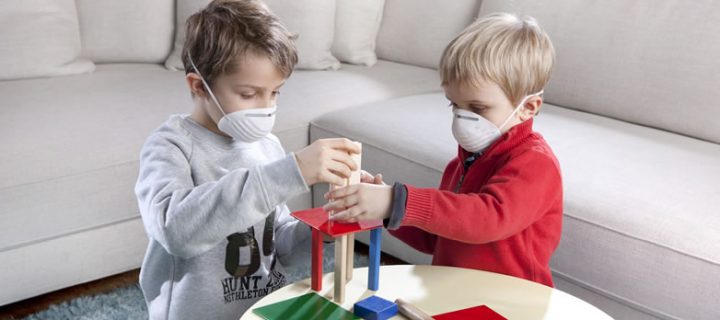A rash, fever, stomach pain and overall inflammation could be related to COVID-19.
Children are now entering hospitals with a strange multisystem inflammatory syndrome that experts think could be linked to COVID-19. At the time of this writing, about 150 children in the US, most found in New York State, have these strange symptoms and CNN reports that at least 17 states and Washington DC are now looking into additional suspected cases.
Experts are comparing what they are seeing to something called Kawasaki disease.
What is this, and how dangerous is it? Here is a look.
Inflammation Leading to Heart Problems
Kawasaki disease (KD) is described by the CDC as an “acute febrile illness of unknown cause”. It was first discovered by Tomisaku Kawasaki in Japan back in 1967, and it largely affects young children under the age of five. Its symptoms include swelling of the hands and feet, a rash, a fever, irritated eyes, swollen neck glands, and an irritated throat, as well as inflamed lips and mouth.
Alarmingly, KD is a leading cause of acquired heart disease in the US. This is because the inflammation it causes tends to target medium-sized arteries throughout a patient’s body.
Related: COVID-19: Can We Believe China’s Numbers?
This includes the coronary arteries that supply blood to the heart.
Boys are slightly more likely to get Kawasaki disease, as well as children of Asian or Pacific Island descent. Thankfully, most cases are treatable. They leave the child without any lasting damage. Sadly for some, however, KD can prove to be fatal, even if it is caught and treated.
What’s Going On Now
The inexplicable symptoms some children are now displaying around the world are presenting in a way that is very similar to KD, but they might not be related, some say.
According to Canada’s Ottawa Herald, Spain’s Association of Pediatrics has recently warned doctors that school-aged children were showing up at their medical clinics with “an unusual picture of abdominal pain, accompanied by gastrointestinal symptoms”. These symptoms were sometimes drastic. They were leading to shock within just hours, as well as low heart problems and low blood pressure.
Related: 5 Coronavirus Feel-Good Stories
Areas of Italy hit hard by the coronavirus are also said to be reporting an atypical rise in children diagnosed with what looks like Kawasaki disease.
Cases are now also showing up in North America, Belgium and France. Unfortunately, the list of affected countries will likely continue to grow.
Symptoms
The children with this new inexplicable illness are typically showing a variety of symptoms. These include a fever, rash, abdominal pain, vomiting, diarrhea, low blood pressure, and a rapid heart beat. The infection is also showing up as inflammation of the heart, kidney and liver, and is affecting young children as well as teens.
So, is this KD or not? Some medical experts say while the present illness looks similar to KD, it is different. It is much more intense. Dr. Sunil Sood, a pediatric infectious disease physician in New York State says the school-aged patients he is now seeing are sicker than those he has treated for Kawasaki disease in the past.
Related: Why You Should Never Ingest Disinfectants
And there is another element. All of the school-aged patients Dr. Sood has seen in recent days have either tested positive for COVID-19 or for the coronavirus antibodies. So, they have all had the coronavirus at some point.
What should you look for? Sood says that parents should be watching for strong abdominal pain that sometimes seems like appendicitis. The symptoms he sees also include swollen hands and feet, trouble breathing, red eyes, a rash, confusion, as well as diarrhea and difficulty breathing or fainting.
If you or your child is feeling sick, seek medical attention.
For more on the coronavirus, click here.











